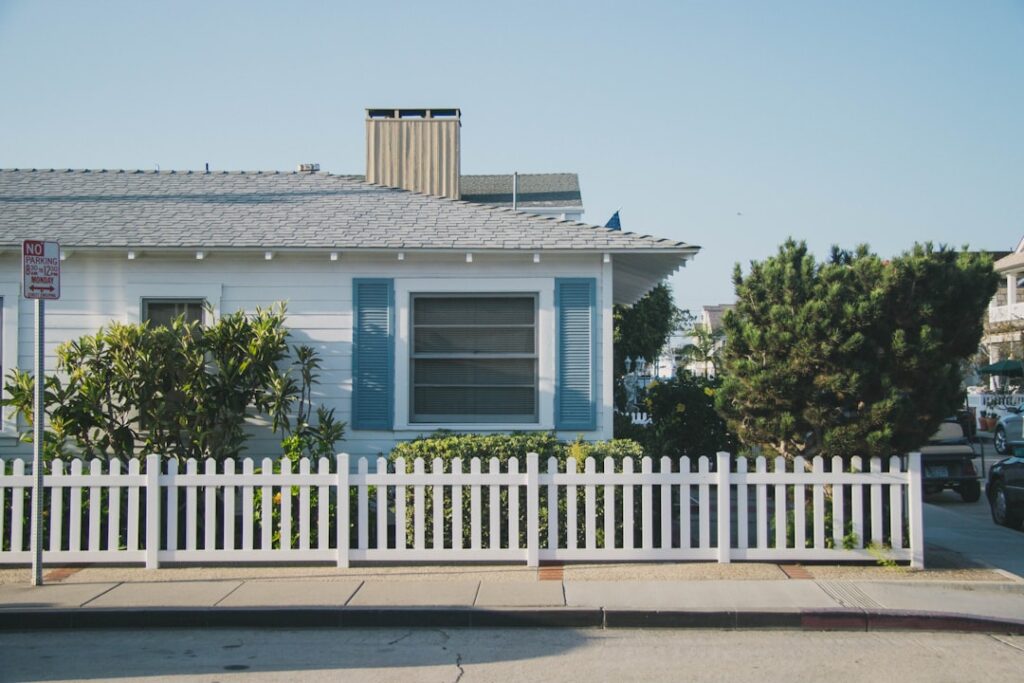The rental market in Dubai is a dynamic and multifaceted landscape that reflects the city’s rapid growth and diverse population. With its status as a global business hub and a popular tourist destination, Dubai attracts a wide range of tenants, from expatriates seeking temporary housing to families looking for long-term residences. The market is characterized by a variety of property types, including luxury apartments, villas, and townhouses, catering to different budgets and preferences.
The demand for rental properties often fluctuates based on economic conditions, seasonal trends, and changes in government policies, making it essential for both tenants and landlords to stay informed about current market dynamics. In recent years, the rental market has seen significant shifts due to various factors, including the COVID-19 pandemic, which altered living preferences and work arrangements. Many tenants began seeking larger spaces with access to outdoor areas as remote work became more prevalent.
Additionally, the introduction of new regulations aimed at enhancing tenant rights and improving rental practices has further shaped the market. Understanding these trends is crucial for anyone looking to navigate the rental landscape in Dubai effectively, whether they are searching for a new home or managing a rental property.
Key Takeaways
- The rental market in Dubai is competitive and diverse, with a wide range of properties available for tenants to choose from.
- When looking for the right property, tenants should consider factors such as location, amenities, and budget to ensure they find a suitable home.
- Negotiating the lease agreement is an important step for tenants, who should carefully review the terms and conditions before signing.
- Tenants in Dubai have rights and responsibilities, including maintaining the property and paying rent on time, which they should be aware of to avoid any disputes with landlords.
- Landlords in Dubai can attract and screen tenants by maintaining their properties well, conducting background checks, and setting a fair rental price to ensure a steady income.
Tips for Tenants: Finding the Right Property
Finding the right property in Dubai requires a strategic approach that takes into account personal needs, budget constraints, and lifestyle preferences. One of the first steps is to clearly define what you are looking for in a rental property. Consider factors such as location, size, amenities, and proximity to work or schools.
For instance, families may prioritize access to reputable schools and parks, while young professionals might prefer vibrant neighborhoods with nightlife and dining options. Utilizing online property portals like Property Finder or Dubizzle can help streamline the search process by allowing tenants to filter listings based on their specific criteria. Once you have narrowed down your options, it is advisable to visit potential properties in person.
Virtual tours can provide a preliminary view, but nothing compares to experiencing a space firsthand. During visits, pay attention to the condition of the property, the quality of fixtures and fittings, and any potential maintenance issues. Additionally, consider the surrounding area—check for nearby amenities such as grocery stores, public transport links, and recreational facilities.
Engaging with local real estate agents can also be beneficial; they possess valuable insights into neighborhoods and can help identify properties that meet your requirements.
Tips for Tenants: Negotiating the Lease Agreement
Negotiating a lease agreement in Dubai can be a pivotal moment in securing favorable terms for your rental arrangement. It is essential to approach this process with a clear understanding of your rights and the current market conditions. Before entering negotiations, research comparable rental prices in the area to establish a baseline for what constitutes a fair rate.
This knowledge will empower you during discussions with landlords or property managers, allowing you to advocate for reasonable adjustments if necessary. When negotiating the lease terms, consider aspects beyond just the rental price. For example, you might want to discuss the duration of the lease, renewal options, and any included utilities or maintenance services.
It is also wise to clarify policies regarding security deposits and potential penalties for early termination of the lease. A well-structured lease agreement should protect both parties’ interests; therefore, ensure that all verbal agreements are documented in writing before signing. This diligence can prevent misunderstandings or disputes down the line.
Tips for Tenants: Understanding Your Rights and Responsibilities
Tenants in Dubai have specific rights and responsibilities that are governed by local laws and regulations. Familiarizing yourself with these legal frameworks is crucial to ensuring a smooth rental experience. The Dubai Rental Law outlines key tenant rights, including the right to live in a habitable property free from major defects and the right to privacy within your rented space.
Additionally, tenants are entitled to receive proper notice before any eviction proceedings can commence, typically requiring at least 90 days’ notice from the landlord. On the flip side, tenants also have responsibilities that must be upheld throughout their tenancy. This includes timely payment of rent as stipulated in the lease agreement and maintaining the property in good condition.
It is important to report any maintenance issues promptly to avoid further damage or complications. Understanding these rights and responsibilities not only helps tenants protect themselves but also fosters a respectful relationship with landlords, which can lead to a more positive renting experience overall.
Tips for Landlords: Attracting and Screening Tenants
For landlords in Dubai, attracting quality tenants is essential for maintaining a profitable rental business. One effective strategy is to enhance the property’s appeal through thoughtful staging and professional photography when listing it online. High-quality images can significantly impact potential tenants’ first impressions and increase interest in viewings.
Additionally, consider investing in minor renovations or upgrades that can make your property stand out in a competitive market—fresh paint, modern fixtures, or updated appliances can all add value. Screening potential tenants is equally important in ensuring that you find reliable individuals who will respect your property and fulfill their rental obligations. Conduct thorough background checks that include verifying employment status, checking references from previous landlords, and assessing credit history if applicable.
This process not only helps mitigate risks associated with non-payment or property damage but also provides peace of mind knowing that you have chosen responsible tenants who are likely to maintain your property well.
Tips for Landlords: Setting the Right Rental Price
Setting an appropriate rental price is one of the most critical decisions landlords face when entering the Dubai rental market. Pricing too high can deter potential tenants while pricing too low may lead to financial losses over time. To determine a competitive rate, conduct comprehensive market research by analyzing similar properties in your area regarding size, amenities, and location.
Online platforms like Property Finder can provide valuable insights into current market trends and average rental prices. Additionally, consider factors such as seasonal demand fluctuations when setting your price. For instance, during peak tourist seasons or major events like Expo 2020, demand may surge, allowing landlords to command higher rents temporarily.
Conversely, during quieter months or economic downturns, it may be necessary to adjust prices downward to attract tenants. Flexibility in pricing strategies can help ensure consistent occupancy rates while maximizing rental income.
Tips for Landlords: Managing the Property and Dealing with Tenant Issues
Effective property management is crucial for landlords aiming to maintain their investment while fostering positive relationships with tenants. Regular maintenance checks should be conducted to ensure that all systems—such as plumbing, electrical work, and HVAC—are functioning properly. Promptly addressing maintenance requests from tenants not only keeps them satisfied but also prevents minor issues from escalating into costly repairs.
When tenant issues arise—be it late rent payments or disputes over property conditions—open communication is key. Establishing clear lines of communication from the outset can help resolve conflicts amicably before they escalate into more significant problems. Documenting all interactions related to tenant issues is also advisable; this creates a record that can be useful if disputes need to be addressed legally later on.
Navigating the Legal Aspects of Renting in Dubai
Navigating the legal aspects of renting in Dubai requires an understanding of both tenant and landlord rights as outlined by local laws. The Real Estate Regulatory Agency (RERA) governs many aspects of rental agreements in Dubai, providing guidelines that protect both parties involved in a lease agreement. Familiarizing yourself with these regulations is essential for ensuring compliance and avoiding potential legal pitfalls.
For tenants, understanding the eviction process is particularly important; landlords must follow specific legal procedures before evicting a tenant, including providing adequate notice and valid reasons for termination. Conversely, landlords should be aware of their rights regarding rent increases and property access for maintenance purposes. Engaging with legal professionals who specialize in real estate law can provide valuable guidance on navigating these complexities effectively while ensuring that both parties adhere to their obligations under Dubai’s rental laws.
If you are interested in learning more about property management in Dubai, you should check out The Ultimate Dubai Property Management Guide. This article provides valuable insights for both tenants and landlords looking to navigate the rental market in Dubai. For more information on renting property in Dubai, visit DSS Properties or contact us directly at this link.
FAQs
What are the typical rental terms in Dubai?
In Dubai, rental terms are usually for a period of 12 months, with the option to renew at the end of the term. Some landlords may offer shorter or longer rental terms, but 12 months is the standard.
What are the typical rental costs in Dubai?
Rental costs in Dubai vary depending on the location, size, and amenities of the property. Generally, tenants can expect to pay a security deposit (usually equivalent to one month’s rent), agency fees (usually 5% of the annual rent), and the first month’s rent in advance.
What are the rights and responsibilities of tenants in Dubai?
Tenants in Dubai have the right to a habitable property, privacy, and the return of their security deposit at the end of the tenancy. They are responsible for paying rent on time, maintaining the property in good condition, and adhering to the terms of the tenancy agreement.
What are the rights and responsibilities of landlords in Dubai?
Landlords in Dubai have the right to receive rent on time, access the property for maintenance and inspections with proper notice, and to retain the security deposit for any damages beyond normal wear and tear. They are responsible for maintaining the property in good condition and adhering to the terms of the tenancy agreement.
What are the common pitfalls to avoid when renting property in Dubai?
Common pitfalls to avoid when renting property in Dubai include not thoroughly reading and understanding the tenancy agreement, not conducting a thorough inspection of the property before moving in, and not documenting the condition of the property with photos or videos. It’s also important to ensure that all financial transactions are conducted through legal channels and to be aware of any hidden costs or fees.




